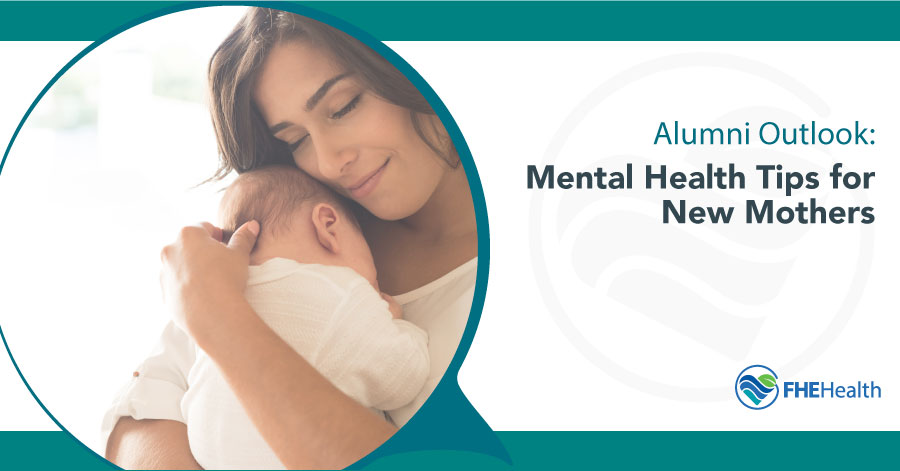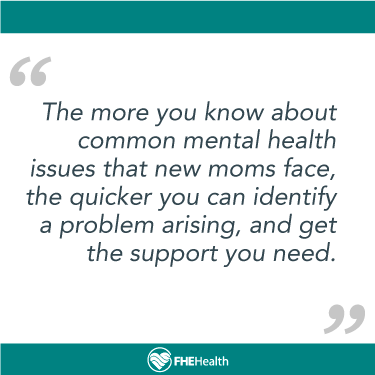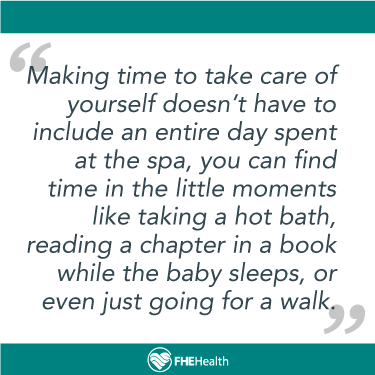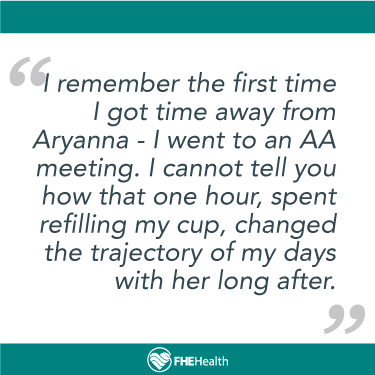
I was 20 years old when I had my first baby. I was a kid, preparing to have a kid. All of the wonderful women in my life did their best to throw their best mom hacks my way in preparation for this new role I was taking on. However, I’m not sure anyone prepared me for the toll becoming a new mom would take on my mental health.
Motherhood is one of the most important and sacred responsibilities a woman can take on. Becoming a new mom is also extremely stressful as you prepare to be the caretaker of your precious newborn. The lack of sleep, incessant crying, lack of energy, all of it pales in comparison to the unexpected blows to your mental health. Here are a few mental health tips for new mothers.
Educate yourself on mental health.
 Awareness is key. The more you know about common mental health issues that new moms face, the quicker you can identify a problem arising, and get the support you need. During my first pregnancy, I had no idea what postpartum depression was, so how was I supposed to possibly identify the storm headed my way? I can remember feelings of hopelessness, being overwhelmed, short patience, and just this dark cloud of sadness. I can remember feeling like I was standing in a crowded room of people, and no one could even see or hear me. Eventually, the pain was great enough, and I went to visit my primary care doctor. Without even batting an eye, she explained the ins and outs of postpartum depression to me and I walked out with an answer and an antidepressant to aid in the process of getting back to myself.
Awareness is key. The more you know about common mental health issues that new moms face, the quicker you can identify a problem arising, and get the support you need. During my first pregnancy, I had no idea what postpartum depression was, so how was I supposed to possibly identify the storm headed my way? I can remember feelings of hopelessness, being overwhelmed, short patience, and just this dark cloud of sadness. I can remember feeling like I was standing in a crowded room of people, and no one could even see or hear me. Eventually, the pain was great enough, and I went to visit my primary care doctor. Without even batting an eye, she explained the ins and outs of postpartum depression to me and I walked out with an answer and an antidepressant to aid in the process of getting back to myself.
Fast forward to my second pregnancy, I was fully aware of postpartum depression and the possibility of struggling with anxiety post-delivery. Rather than waiting for my feelings to reach a point where they were seemingly insurmountable, I immediately dove into therapy and got back onto my antidepressants. I didn’t have to suffer in silence, struggling with all the nuances of having a brand-new baby.
Self-care is not optional.
 One of the most important components of maintaining good mental health is self-care. Motherhood is a role in which most mothers often lose their identity as they become overjoyed and consumed with all the new experiences and responsibilities of parenting. While this is normal, this often leads to a whole void of self-care. Parenting is a full-time responsibility that often negates any plan to indulge in self-care. Making time to take care of yourself doesn’t have to include an entire day spent at the spa, you can find time in the little moments like taking a hot bath, reading a chapter in a book while the baby sleeps, or even just going for a walk.
One of the most important components of maintaining good mental health is self-care. Motherhood is a role in which most mothers often lose their identity as they become overjoyed and consumed with all the new experiences and responsibilities of parenting. While this is normal, this often leads to a whole void of self-care. Parenting is a full-time responsibility that often negates any plan to indulge in self-care. Making time to take care of yourself doesn’t have to include an entire day spent at the spa, you can find time in the little moments like taking a hot bath, reading a chapter in a book while the baby sleeps, or even just going for a walk.
When it comes to choosing to take my kids on a new adventure or squeezing a little time for myself, I always seem to choose to do something for my kids. Early on in their lives, I was breastfeeding and could never find five minutes in which I felt comfortable enough to be away from either of my kids. It wasn’t long before I was exhausted: mentally, physically, and spiritually. That exhaustion perpetuated a poor mental health cycle in which I was drowning in depression and anxiety. I remember the first time I got time away from Aryanna – I went to an AA meeting. I cannot tell you how that one hour, spent refilling my cup, changed the trajectory of my days with her long after.
Limit the never-ending list of to-do’s and ask for help.
 Being at home with a newborn can be so isolating. Not only are you home alone with a little human, who solely relies on you to survive, but you are stuck in the house with laundry, dishes, and dirty baseboards beckoning your call. In the beginning stages, your new little mini will be napping, eating, and needing diaper changes on a regular basis. One of the best ways to reduce stress during this stage is to eliminate time-consuming tasks. For example, if you love a clean house, it’s always a great idea to ask your family, spouse, or friends to help you clean up until you have more time in your schedule.
Being at home with a newborn can be so isolating. Not only are you home alone with a little human, who solely relies on you to survive, but you are stuck in the house with laundry, dishes, and dirty baseboards beckoning your call. In the beginning stages, your new little mini will be napping, eating, and needing diaper changes on a regular basis. One of the best ways to reduce stress during this stage is to eliminate time-consuming tasks. For example, if you love a clean house, it’s always a great idea to ask your family, spouse, or friends to help you clean up until you have more time in your schedule.
When I had Aryanna, my family and friends flew in for the occasion. I will never forget how awkward it felt to allow my tribe to be so helpful. However, the more dinners they cooked, laundry they cleaned, and dishes they washed – the better I felt. I have a knack for wanting everything to be “perfect” and that delusion was smashed early on. Between running Liam back and forth to school, to tending to newborn Aryanna – I really didn’t have time to keep up with all of the normal errands and tasks I could before. Limiting my list of to-do’s and asking for help, kept my mental health in check.
Find your tribe that you can be transparent with.
There is no love and support like the love and support found in a tribe of mothers. No one on this planet can relate to the emotions, stress, and fears associated with taking care of a newborn like other moms. One of the most important components of maintaining your mental health is community. Isolation is a breeding ground for unhealthy thoughts, self-criticism, depression, and anxiety. Identifying and connecting with a community of men and/or women that you can share your feelings with is so important – especially for new mothers.
It’s okay to have days when you feel overwhelmed – it’s normal. It’s also okay to have days where you cry or yell or maybe you even lose your patience. It’s not okay to isolate and suppress all of the thoughts and emotions you are feeling down. Taking care of your mental health when caring for your newborn is the best way to be the best mom you can be. It’s important to always remember: “You can’t pour from an empty cup.”






